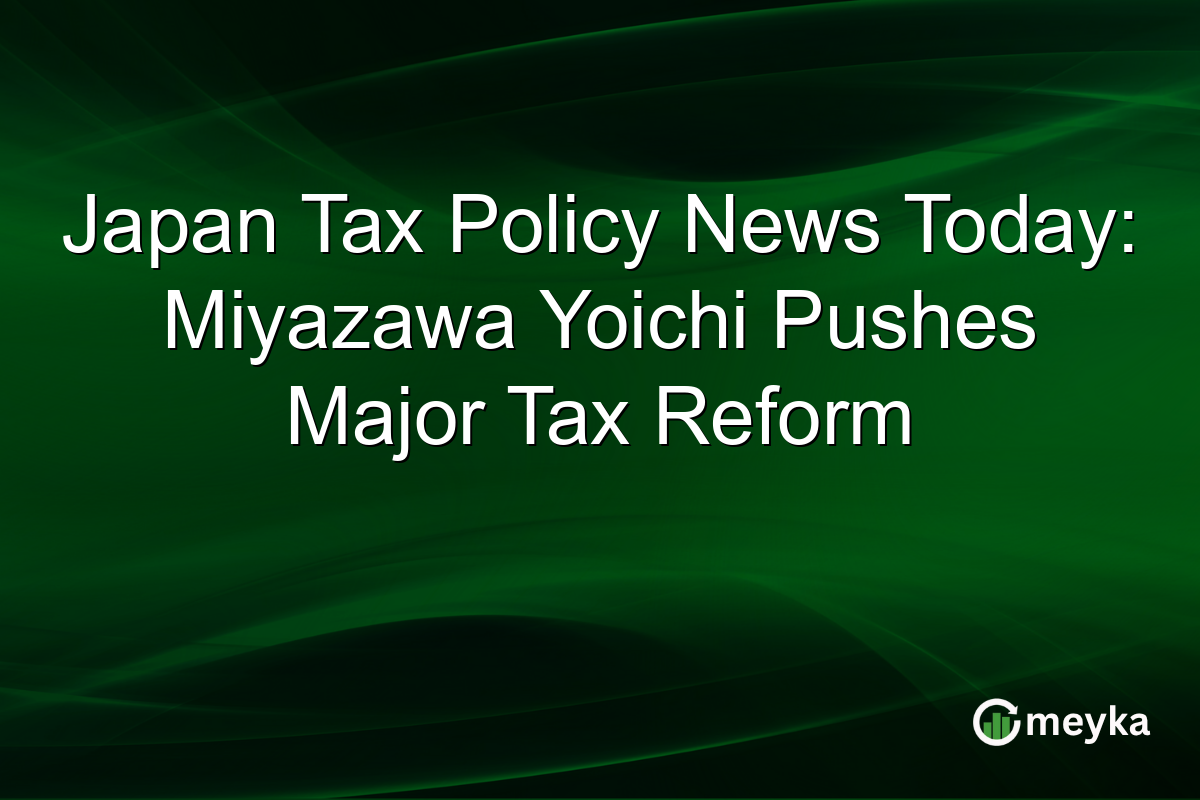Japan Tax Policy News Today: Miyazawa Yoichi Pushes Major Tax Reform
Japan is set to see significant tax reform as Miyazawa Yoichi, head of the Tax System Research Council, outlines ambitious efforts to boost economic growth. These proposed changes aim to tackle Japan’s fiscal challenges, focusing on corporate and income tax policies. As these reforms take shape, the implications for businesses and individuals are substantial.
Miyazawa Yoichi’s Vision for Tax Reform
Miyazawa Yoichi’s recent moves spotlight a shift in Japan’s tax strategy. He proposes bold modifications to enhance economic prosperity. His focus is on adjusting corporate and personal income taxes, addressing inefficiencies in the current system. An article from Reuters suggests these changes are designed to stimulate investment and consumer spending. The emphasis is on widening the tax base while minimizing the burden on individuals and businesses. By doing so, Japan aims to invigorate its sluggish economy. These suggestions reflect a trend toward creating a more balanced and efficient tax environment.
Core Changes in Japan’s Tax Policy
Miyazawa’s potential reforms include lowering the corporate tax rate to encourage domestic and foreign investment. As reported by Nikkei Asia, adjustments to the personal income tax could also support wage growth and consumption. Such reforms are seen as essential for promoting competitive business practices. The aim is to create a friendly environment for startups and established firms alike. By fostering a robust economic landscape, Japan hopes to address its fiscal deficits and grow its GDP sustainably.
Implications for Businesses and Consumers
For businesses, Miyazawa’s tax policies might lead to increased opportunities for expansion. Lower taxes could mean higher profitability and reinvestment into operations. However, these changes also present challenges, as companies will need to navigate new regulations effectively. Consumers are poised to benefit from adjustments in income tax. This might translate into greater disposable income and potential boosts in spending. The reforms signify a targeted effort to lift economic participation across all levels. In the broader context, Japan seeks to balance public finances while maintaining social welfare systems. Achieving this requires careful implementation and cooperation between government and private sectors.
Final Thoughts
Miyazawa Yoichi’s push for tax reform is set to transform Japan’s economic landscape. The proposed changes focus on fostering long-term growth and addressing fiscal imbalances. By realigning corporate and income taxes, Japan aims to strengthen its competitive global position while enhancing domestic prosperity. While these reforms offer exciting opportunities, they also require cautious planning and adaptation from businesses and individuals. As Japan moves toward these changes, monitoring their rollout and impact will be crucial. The journey ahead, though challenging, positions Japan for a potentially robust economic future.
FAQs
Miyazawa Yoichi’s reforms suggest reducing corporate taxes and adjusting personal income taxes. The objective is to boost investment and consumer spending, fostering economic growth. These changes aim to make the tax system more efficient and balanced.
Businesses might gain from lower corporate taxes, allowing higher profitability and the potential for reinvestment. The changes seek to create a competitive environment that encourages both domestic and foreign investment, which could lead to expansion opportunities.
Consumers may benefit from reductions in personal income tax, increasing disposable income and encouraging spending. These adjustments aim to stimulate economic participation, potentially leading to enhanced economic growth and household financial stability.
Disclaimer:
This is for information only, not financial advice. Always do your research.






